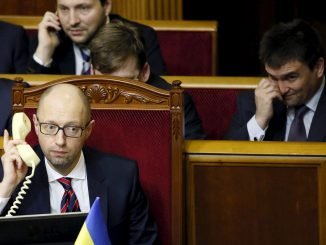
Eastern Europe Studies Centre


Poland to challenge rules of Europe’s foreign policy game
Across Europe all eyes have been on Poland‘s conservative Law and Justice Party since they dramatically swept back into power. After securing a majority in the Polish parliament, the party swiftly put their power to use, launching controversial reforms of the country’s Constitutional Court and increasing control over state media, in the process drawing comparisons with Viktor Orban’s Hungary. […]

Fringe media outlets mobilising to create new political force in Lithuania
Fringe online media outlets in Lithuania, often embracing ideas that match those of the state-controlled Russian media, have long been cooperating and sharing information among themselves. Experts say that now they are mobilizing behind politicians who are trying to win power. […]
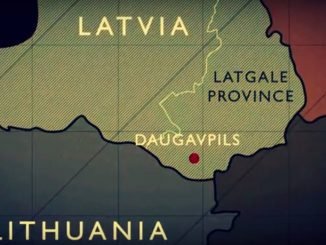
Lithuanian analysts unconvinced by BBC’s World War Three scenario
A recent programme aired by the BBC explores a hypothetical doomsday scenario of a nuclear stand-off between Russia and NATO over Latvia. Analysts in Lithuania say it presents too simplistic a take on geopolitical realities in Eastern Europe which, in itself, could erode confidence in NATO‘s collective defence commitments. […]

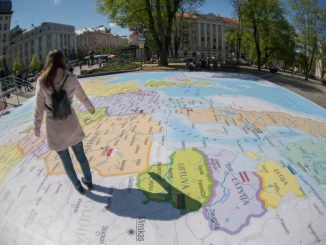
Why Europe won’t protect its borders
The refugee crisis has uncovered a major flaw in the European Union‘s (EU) policy of free movement of people: porous external borders. Lithuanian commentators say some countries are just not interested in solving the problem. […]
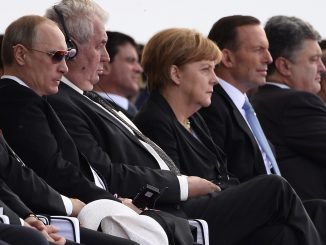
Putin‘s Russia. How to change a country within several years
In the last essay of this series, I presented the experience of historic and recent Russia‘s impact in Greece, now I will attempt to look at one of the new member states of the European Union – the Czech Republic. […]
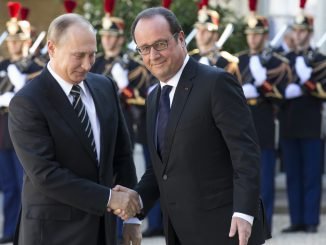
Will there be rapprochement between Russia and West?
Terrorist attacks in Paris and the plane crash over Egypt’s Sinai Peninsula might provide a turning point in Russia‘s relations with the West, allowing Moscow to break out of international isolation. Major Western powers might have to adopt a more lenient tone when talking to Russia in order to have Moscow contribute to fighting international terrorism, says Laurynas Kasčiūnas, analyst at the Eastern Europe Studies Centre. […]
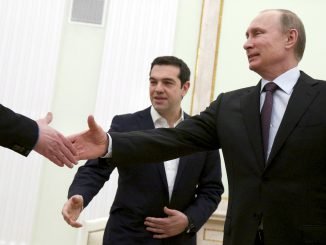
Putin’s Russia. Kremlin’s plan for Europe, bribe No. 1
In the previous articles of the series ‘Putin’s Russia: Kremlin’s Goals and Tools’, I analysed the theory and practice of Russia’s foreign policy and drew attention to the fact that Russia still uses the ammunition of USSR KGB – disinformation, influence agents, scandals (e.g., Edward Snowden’s story) and criminal activity: corruption, criminal world, drug trafficking and terrorism. So I will now move on to the cases of three countries and their policies – that, I believe, will be a perfect illustration of Kremlin’s capabilities. […]


US focuses more on Eastern Europe, Lithuanian foreign minister says
On 2 November in Vilnius, Minister of Foreign Affairs of Lithuania Linas Linkevičius welcomed the participants of the roundtable discussion Transatlantic Renewal and thanked them for their effort to develop the vision of a free and united Europe, Lithuania’s MFA reports. […]

Lithuanian analyst: Who is Russia actually fighting in Syria?
Russia launched airstrikes in Syria on Wednesday in what it says is an effort to weaken ISIS. “The main question is what Russia is actually fighting in this case, since Russia’s enemy is not exactly the enemy identified by the West,” says analyst Linas Kojala of the Eastern Europe Studies Centre in Vilnius. […]


Outbreak of violence is test for Ukrainian government, Lithuanian foreign minister says
The recent outbreak of violence in Kiev is a major test for the Ukrainian government, Lithuanian Foreign Minister Linas Linkevičius says. He hopes, however, that it will not impede the implementation of the truce deal. […]

Why Lithuania is bound to be pro-American
There was a time right after World War Two when Lithuanians believed that the United States of America would swoop into a Soviet-occupied country and drive the Soviets away. These hopes were rather baseless, yet the USA did stand by its policy not to recognise the annexation of the Baltic states. The start of this policy is believed to be July 23rd, 1940, with the declaration to this effect by US State Secretary Sumner Welles. […]

Opinion: The Russians are coming to occupy the Baltic states
I purposefully chose a title for my piece to evoke the notorious phrase from 1949 by the then US Secretary of Defense, James Forrestal: “The Russians are coming. The Russians are coming. They’re right around. I’ve seen Russian soldiers.” […]


Dilemma of EU neighbourhood policy: Mediterranean vs. Eastern Partnership
The European Neighbourhood Policy (ENP) is the instrument through which the European Union (EU) aims to create bonds between its Member States and the countries at the boundaries of the EU and thus secure the stability of the European borders. The EU stipulates Association Agreements offering financial support and other advantages in exchange for a commitment to implement reforms. There are two action plans within the ENP: the Union for the Mediterranean (UfM) and the Eastern Partnership (EaP). […]
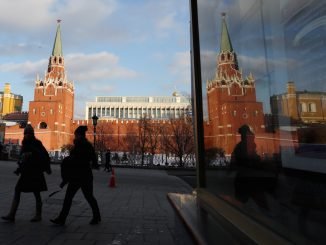
Russian journalists and NGOs are used to monitor opposition, Lithuanian agency says
According to Lithuanian State Security Department‘s (VSD) activity report for 2014, Russia‘s intelligence services are using Russian journalists and representatives of non-governmental organisations to spy on and discredit the Russian opposition. Journalists and representatives of NGOs are also monitoring visits of the Kremlin’s critics to Lithuania. […]

Opinion: Russia’s nuclear blackmail and new threats of covert diplomacy
The world has truly entered a new era. Even Russia‘s nuclear blackmail has become such an everyday occurrence that it sometimes passes underappreciated. One concludes thus after last week’s reports in British dailies The Times and The Independent about a meeting between Russian and US generals in March where Russia voiced threats of a nuclear response should NATO continue to deploy forces in the Baltic states. […]
